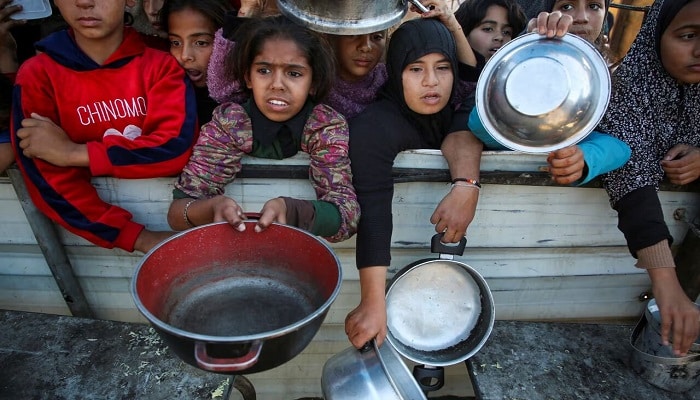PNN – The Guardian wrote: The increase in food prices in Gaza following the looting of 100 aid trucks has exacerbated the serious food crisis in the region after more than a year of war between Israel and Hamas.
According to the report of Pakistan News Network, this English newspaper quoted Margaret Harris, the spokesperson of the World Health Organization, as saying: The theft of 98 trucks by armed men, the biggest attack on aid trucks so far, has exacerbated the shortage of food, medicine and other necessities.
He said on Tuesday that it has become more and more difficult to deliver aid to Gaza.
The Guardian wrote: According to Israel’s official (diet) statistics, the amount of food entering the besieged Gaza area has reached its lowest level in the last 11 months despite the US deadline.
Israel claims to have allowed an average of 88 trucks into Gaza in November. But this number of licenses is less than 600 trucks per day, which according to the aid organizations, is needed to provide the necessities of the residents of Gaza. Experts say that in the northern third of Gaza, where the attacks of the Israeli forces have killed hundreds of people and displaced tens of thousands, famine has probably already occurred.
The aid organizations in this area have tried to collect and distribute the necessary necessities at the same time as the Israeli army (regime) activity to block the traffic and attack the employees of these organizations. About a third of all aid is said to be hijacked by armed gangs and resold at exorbitant prices, according to the United Nations.
Read more:
Axios: By intensifying attacks, Israel is trying to pressure Hezbollah to accept a ceasefire
The Guardian added: “(The regime) Israel has denied that it is deliberately blocking the flow of aid to Gaza and has ignored the proliferation of gangs and organized crime since the October 7 attacks.”
Palestinian groups (regime) accuse Israel of trying to cause disorder through targeted attacks on Hamas-affiliated police forces guarding aid trucks.
On Tuesday, reports were published that showed that Hamas has formed armed forces to counter Baghart amid fears of famine.
Community leaders in central Gaza said some local residents also fought looters and tried to recover stolen cargo, some of which was returned to WFP.
Meanwhile, hopes have risen for a ceasefire in the two-month-old war between Israel and Lebanon’s powerful Hezbollah militia, the Guardian claimed.
“The agreement is in our hands,” Joe Biden’s administration representative Amos Hochstein said during a visit to Beirut on Tuesday. He spoke of “constructive talks” with Lebanese parliament speaker and Hezbollah ally Nabia Beri.
This proposal seems to focus on the withdrawal of Hezbollah forces and the Israeli regime from the UN buffer zone between the two sides. Thousands of peacekeepers and Lebanese soldiers will be stationed in this area and will be responsible for monitoring it.
According to the Guardian, the Israeli regime’s demand that it should have “freedom of action” to respond to Hezbollah’s (alleged) threats is probably a condition that Lebanon is unlikely to accept.

